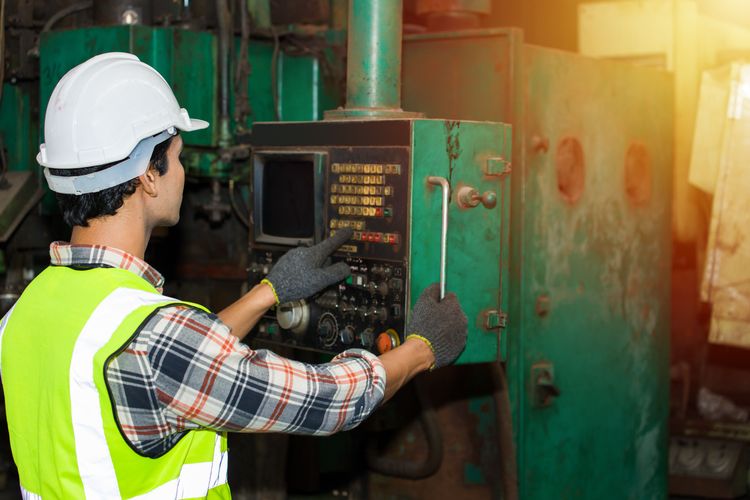The simple answer to this question is that Industry 4.0 is not a model that MSMEs could ‘adopt’, nor is it something to look forward to in the future – this all-encompassing change has been well underway for over a decade, and is here to stay. And businesses that are slow to adapt run a significant risk of falling behind.
At a time when small enterprises are under immense pressure to cut costs and increase competitiveness, embracing the technological paradigm behind Industry 4.0 can be a game-changer. According to a report by McKinsey, industry 4.0 implementation could potentially help Indian companies increase their operational earnings by 40%, at less than 10% of the anticipated capital expenditure across functions - including manufacturing, supply chain, logistics, and procurement. In addition, the report also found that MSMEs that have implemented industry 4.0 can respond more effectively to crises (such as the COVID19 pandemic)
At a macro level, industries in India need to change their narrative from one based on old systems of business processes and management practices to one that uses modern technologies for efficiency and greater flexibility in production activities. In recent years, Indian MSMEs have faced stiff competition from MSMEs in other developing economies such as China, most notably in electrical and electronics goods, as well as metallurgical/chemical engineering products. China’s larger economic base offers a significant advantage in low-cost manufacturing operations, which translates into a ‘growth capital gap’; therefore, to remain competitive against foreign competitors, MSMEs must adopt digitalization, and embrace industry 4.0.
Industry 4.0 – What’s in it for the small and medium enterprises of India?
Over time, the majority of India's medium- and small-scale industries have had difficulties assuring quality, productivity, profitability, and customer satisfaction. As per a study by Forbes & SAP, most manufacturing leaders report that Industry 4.0 will help MSMEs realise the following benefits (% of survey respondents):
Improved product quality (48%) - Artificial intelligence-based visual quality inspections used by manufacturing businesses, help to quickly discover faults early in the production process at a cheaper cost with fewer human errors. This makes it possible to anticipate and stop production failure.
Increased productivity (88%) - As it typically involves the use of equipment sensor controls, and other digitally aware devices that are networked to share data to trigger automatic production adjustments and give executives insights for digital decision-making. It helps businesses in managing operations with greater agility. Up until Industry 3.0, automation of processes had only been partial, requiring manual oversight in some cases. That human need might never again exist once the implementation of Industry 4.0 is complete.
3. Higher customer satisfaction (43%) - As it offers an opportunity to expand your ability to serve clients, resulting in an enhanced customer experience. For instance, you can solve issues rapidly with the automatic track, and trace capabilities through automated processes, responding faster and more efficiently than ever before (Ex. Chatbots). This means that customers will get quicker responses when they need assistance with something like an order or product delivery.
Also, Industry 4.0 has the potential to boost customer satisfaction and loyalty by making it easier for customers to access a range of services, products, and information through a variety of channels such as social media, mobile applications, wearable devices, and more. This can be especially helpful when it comes to making purchases online or in-store because it allows them to have more control over what they are buying and how they receive their goods.
4. Increased profitability (74%), will help reduce unnecessary capital expenditure by shortening the manufacturing cycles. Businesses can benefit from a reduction in their operational costs by using virtual assistants, automated systems, or robots to perform tasks that would otherwise require human labor. With more quality data inputs, businesses will find it easier to automate and streamline their workflows, fewer parts or components being produced, better inventory management, and lesser chances for human error resulting in increased profit margins.
Government schemes to help MSMEs benefit from Industry 4.0
The Indian government is making significant investments to support the development of Industry 4.0, including $2 billion for "Digital India" to make the digital shift. IBEF reports that the Indian government has set an ambitious goal to increase manufacturing output's contribution to GDP from its present level of 1 per cent to 25 per cent by 2025. The government of India has also taken initiatives such as Green Corridors and ‘Make in India’ in addition to announcing plans to spend $400 million on e-commerce and $1 billion on big data.
To facilitate and create an eco-system for the propagation of industry 4.0 in every Indian manufacturing business by 2025, irrespective of its size and scale - SAMARTH Udyog Bharat 4.0 initiative has been launched by the GOI. Also, NASSCOM's programs and the Digital India initiatives are making efforts to increase digitalization in manufacturing and help industries adapt to Industry 4.0.
Given this momentum and the government's ambitious aims, it is anticipated that by 2025 India will join the league of nations that have already adopted Industry 4.0 by 2025.
One facet of this new phase of industrialization is digitalization, which is characterised by an increase in the use of digital platforms. Taking your business online is a good place to start if you are an MSME getting ready for the next wave of industrialization.
Industry 4.0 continues to open new avenues for partnering with quality suppliers with the power of online marketplaces like JSW One MSME, a platform that offers a wide variety of quality steel products, including hot-rolled and cold-rolled steel, TMT bars, wire rods, color-coated sheets. It has helped MSMEs digitalise their steel procurement and made it easier to focus on expanding their business.





 +91 7208055523
+91 7208055523
 Help & support
Help & support
